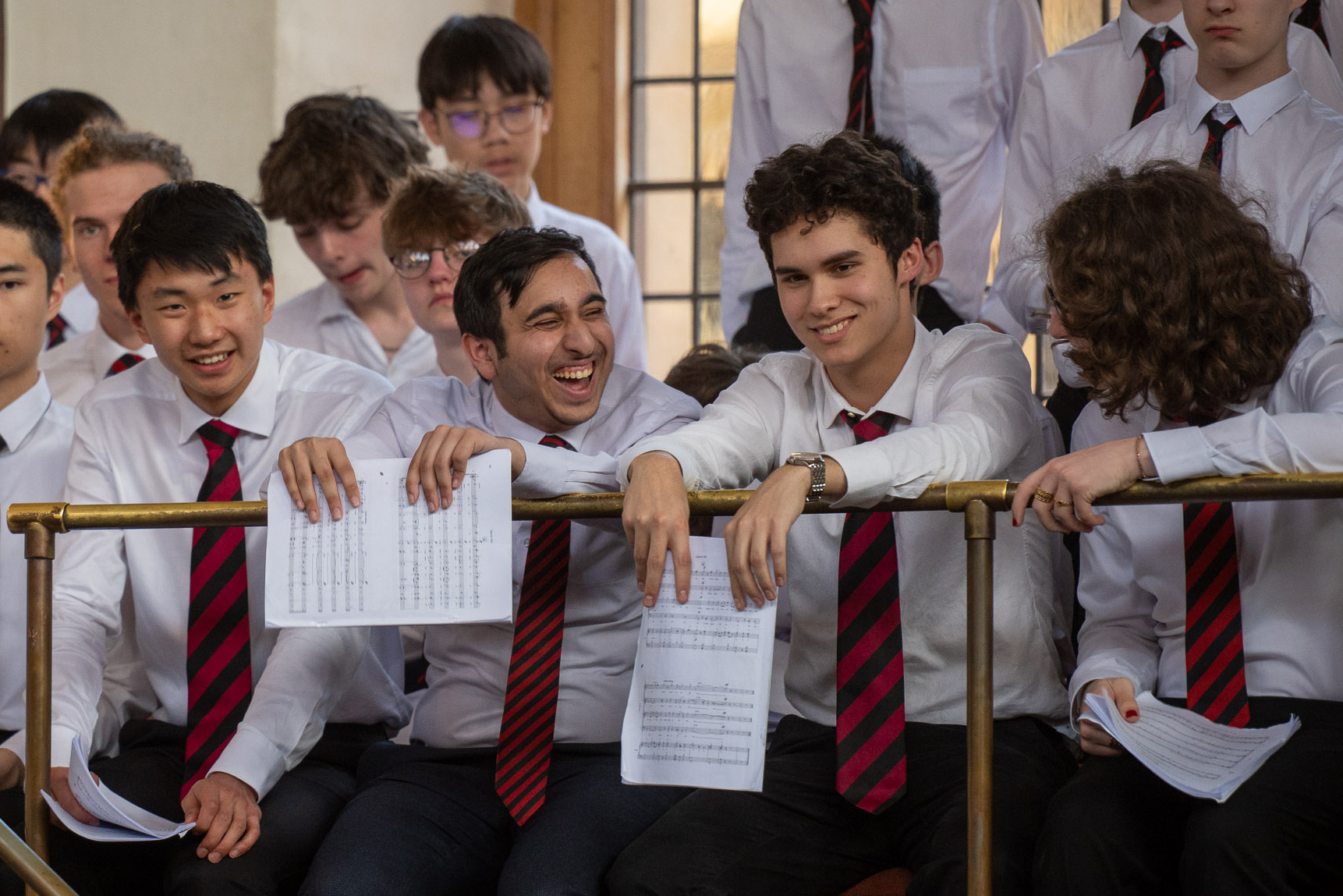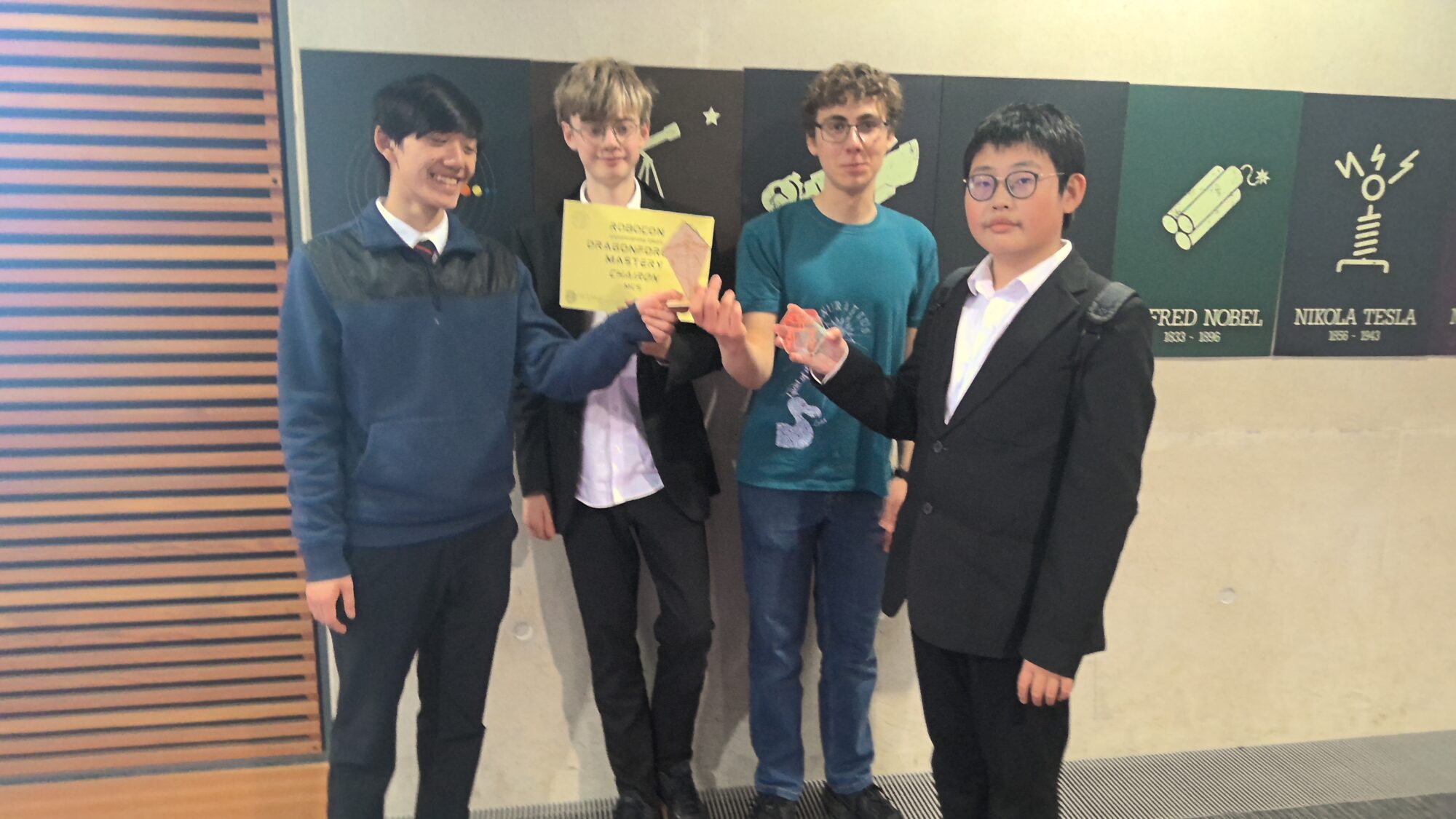(15 April 1933 – 10 January 2023)
The Waynflete Office has been informed of the death of OW Stephen Coles. We send our condolences to his wife Sandra, son Paul and his wider family and friends.
This obituary is written by Stephen’s family and is reproduced from Vincent’s newsletter.
With sincere thanks to the family of Stephen Coles, a truly remarkable Vincent, who sent us this wonderful story of a life well lived. Our sympathies go to Stephen’s family and friends.
Stephen left us a few months ago, discreetly, as he always lived and left an immense void in our lives. His hallmark was to be humble in his achievements and that endearing quality made him appreciated by all who knew him.
He was “town and gown”. Born in Oxford in 1933, he went to school to Magdalen College School and finished his studies there as Head Boy. His old Headmaster, Master R.S. Stanier congratulated him on his “versatile achievements which have tipped the Magdalen lillies with gold”. He collected two caps for winning the U15 England vs Wales in 1947-1948 He was called up for National Service in 1952 and commissioned officer in the Royal Sussex Regiment, Western Command.
In 1954, he went to Magdalen College to read History and graduated in 1957; this was followed by a Diploma in Education in 1958.
Stephen’s lifelong passion remained rugby and his allegiance steadfast to his Alma Mater. Although he was talented in many sports, it was in rugby that he excelled. A true Blue, (he obtained his Blues in 1954, 1956 and 1957) he demonstrated his skills in many games and scored a winning try against Cambridge in the Varsity match on 11 December 1957. The Times sports headline recorded: “Oxford Smash Cambridge Rugby Machine”.
Even though he played hard in the Varsity matches, he enjoyed taking part in the combined tour to Harvard and Canada with the Cambridge team, the love of the game overtaking the old rivalry with Cambridge.
He was invited to play for the Barbarians Easter Tour and for the Tour of Canada in 1957.
Unfortunately, he was refused permission by the university because of the looming finals and always regretted the missed opportunity. He was also a Barbarians reserve for the Tour of South Africa and considered these invitations to be an honour. He thought of them as “distinguished invitations”. He participated in various rugby tours, notably to Ireland, Scotland and France. England Trial in December 1956. He was a Reserve in the Final Trial at Twickenham in 1957.
He was invited to Barbarians vs East Midlands but could not play because he had been injured. Aged 12, he started perfecting his long, accurate passes at Magdalen College School. He was the captain of the Greyhounds. He played as a scrum-half and during his three years in Trinidad, played for Caribs and coached rugby and made lifelong friends there.
In the words of Wing Forward, his game was “supreme artistry and graced Trinidad rugger”. CRC Gardiner, OBE, when asked who his team of outstanding players of the Sixties would include, said: “Scrum half Stephen Coles who played three times for Oxford in the Varsity match and later played for Harlequins”.
He remained friends with W. S.(Bill) Lawrence who was a school friend and teammate from their days at Magdalen College School. Both were junior internationals, and both got their Blues. Both showed outstanding talent at school. Their friendship ended with Bill’s death, in 2015. When he decided to stop playing rugby, “hanging his boots” as he called it, he carried on playing golf and cricket with some of his old teammates.
He enjoyed attending Vincent’s reunion dinners whenever it was possible and always wore his tie with pride.
In his last years, Stephen managed to inspire two young French neighbours and taught them to do a spin pass in the garden. They took up rugby and told us at his memorial service that they wanted to play for Harlequins when they were older. They were also fascinated by his faded Harlequin shirt which bore no logo.
Stephen graduated in History at Magdalen and taught in various schools. He taught History at Trinity College, in Port of Spain, then at Haileybury College where he was also a Captain in the CCF. From there, he went to Sir William Borlase’s in Marlow, and subsequently took up the post of Head of History at Henley Grammar School and carried on with the CCF. Henley Grammar School became King James’s College and he was appointed Vice Principal and Director of Studies. Finally he obtained the post of Vice Principal and Acting Principal at The Henley Sixth Form College until he retired.
Not leaving the academic world entirely, he became a FEFC inspector and kept his finger on the pulse of the Tertiary Sector. He had a great empathy with students which extended also to his wife’s students, who simply called him Steve.
Wherever he went, he proved to be an inspirational teacher, a supportive colleague who could be relied upon and who provided “the calm in the tempest” in times of crisis.
A natural sportsman, Stephen was also a poet, a writer, a painter and a scholar, disciple of AJP Taylor, whom he admired greatly, and who had been his tutor at Magdalen. He was also a green-fingered gardener and an amateur ornithologist, able to relax in the sunshine and contemplate the fruit of his labour. Above all, he was a family man who enjoyed regular trips to France, but also to Martinique, Guadeloupe and Corsica as he had acquired a taste for islands in the sun when he lived in Trinidad.
Having married a French woman, instead of returning to Trinidad, Provence and the French West Indies beckoned, under the pretext that the food was better. Nevertheless, he kept in touch with his friends from Trinidad and Tobago. Until his last Autumn, he enjoyed soaking the sun and. then having a sundowner, a habit he had acquired in Trinidad. Those French cousins who were rugby players were pleased and honoured to welcome in their midst a Harlequin and an English gentleman with a wry sense of humour.
Before the Varsity Match in 2012, Alistair Hignell (who played for Cambridge in the Varsity match in 1975) wrote for the Times:” rugby; where wit, imagination, flair and intelligence can be given their head”. This is a perfect description of how our beloved Stephen played his game. Stephen’s advice, from his rugby years, was always to watch the blind side. Unfortunately, his illness came from the blind side and mercifully took him away quickly but
peacefully.
He is survived by his wife, their son and daughter-in-law.
 MCS ranks among the top independent secondary schools, and in 2024 was awarded Independent School of the Year for our contribution to social mobility.
MCS ranks among the top independent secondary schools, and in 2024 was awarded Independent School of the Year for our contribution to social mobility.

 28 of our pupils achieved 10 or more 8 or 9 grades in 2024.
28 of our pupils achieved 10 or more 8 or 9 grades in 2024.
 In 2023-24, MCS received over £448,000 in donated funds.
In 2023-24, MCS received over £448,000 in donated funds.




